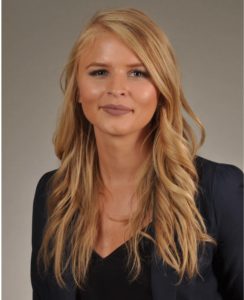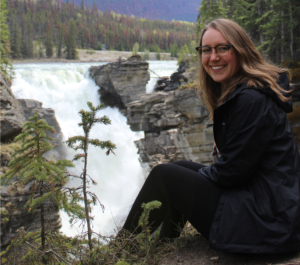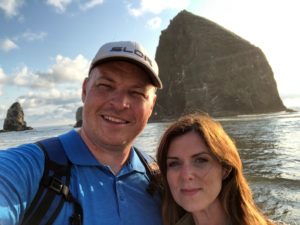RhPAP is proud to announce the recipients of this year’s Rural Medical Student Bursary: Kelly Anderson and Curtis Woolf (University of Alberta) and Karly Nikkel (University of Calgary). Each year, RhPAP offers up to four $5,000 awards to rural Alberta medical students—two students from the University of Alberta and two from the University of Calgary—to assist with the student’s expenses as they study medicine.



(L-R) RhPAP Medical School Awards winners Karly Nikkel, Curtis Woolf (with his wife Amy) and Kelly Anderson
We asked these future health professionals about their experiences growing up in rural Alberta, and how it influenced their decision to practice medicine.
Describe your rural influences.
Kelly Anderson: I was born and raised in the rural community of Lac La Biche. I continue to be supported and encouraged in my education by the people from my hometown. The community has in many ways shaped the person I have become and continues to play a large role in my life. Dr. Magdalena Dehlen and… Dr. Coenraad Claassens have been role models of mine almost my entire life. They are both family doctors in my hometown… who have provided care for many of my family members as well as friends. Their impact in our community both as doctors and general members of our community is one of the reasons I began to consider a career as a physician when I was quite young.
Curtis Woolf: In total, I have spent about 18 years of my life in rural Alberta… My wife also spent much of her younger life in a more rural setting. [Growing up in Olds,] my best friend’s father was a physician in that community, Dr. Wes Jackson.
Karly Nikkel: Growing up in a rural southern Alberta community allowed me to volunteer in many different capacities. I spent many years in teen mentorship, participating and leading global missions’ trips, and organizing events for the local homeless population. My family, significant other, and spiritual community reside in rural southern Alberta.
What interests you about rural practice?
Kelly Anderson: The unique physician-patient relationship that develops in providing care to patients through all stages of their life is a huge draw to practising family medicine in the same community over a long period of time. Specifically, practising within a rural environment would provide the opportunity to work in emergency settings, women’s health, pediatrics, and geriatrics. The broad scope of practice for rural family physicians seems to be the best fit for my interests.
Curtis Woolf: [After 15 years practicing chiropractic in Edmonton,] I was tired of being so specialized and wished that I was able to have a larger scope of practice. I like the idea of being a generalist and I think rural family medicine seems to be one of the most general areas in medicine, allowing you to do many different things from emergency, to obstetrics, to traditional family medicine, and even, possibly, anesthesiology.
Karly Nikkel: My previous experiences with health care [nursing] allowed me to recognize that many rural and remote communities continue to be in need of physicians committed to the community long term. I trained alongside physicians in Raymond, Claresholm, and Cardston where I saw the incredible scope a family physician can practise in. Their relationships with patients provided comfort and trust in the professional relationship and enhanced healing and peace of mind.
What are your practice plans for the future?
Kelly Anderson: Currently, my intention is to specialize in Family Medicine. The University of Alberta Undergraduate Medical Program offers special streams to complete the practical portions of training… in a rural community. I plan to apply to participate in these streams as I believe it will allow me to make connections with different rural communities as well as develop a better understanding of the overall role of a rural family physician. My long-term goal is to finish my residency with a specialization in family medicine and… to establish my life in a rural community. Travelling to isolated and underserved areas as a locum or in other roles is also something I have considered, and I am hoping an opportunity will arise that will allow me to work permanently in a rural community, while also travelling to these more isolated areas.
Curtis Woolf: Rural medicine is definitely the arm of medicine in which I see myself, both in the near future as well as long term. [R]ural life is what my wife and I want after having lived in a city… I would like to be in a community like Crowsnest Pass, working as a family doctor with an FPA [Family Physician Anesthesiologist] designation. This would allow me to have a practice that sees and helps all different types of patients, which is the reason I chose to go back to medical school.
Karly Nikkel: I have always lived in a rural community and believed that my career would be there as well. I hope to be placed in a rural family medicine residency that will allow me the opportunity to work in a multitude of settings including the clinic, local hospital, and emergency room. In the long term, I hope to explore the incredible variety rural family medicine has to offer [and] to have a career that remains stimulating and allows me to work in an interdisciplinary team with a myriad of patients.
Get primed for practice!
The RhPAP Rural Medical School Award provides a one-time contribution of $5,000 to assist with the student’s expenses as they study medicine. The Award is granted to up to four students per year (maximum of two Awards per Alberta medical school), to be applied to the following year of their medical degree.
